Trudder House in Co Wicklow is one of the most tragic cases. Set up in the mid-1970s to house boys from the Travelling community who had been living rough and sniffing glue, it almost immediately became a house of horrors. Eventually, 19 of its young residents made allegations of sexual abuse against several people connected with the home. Allegations against its director included multiple aggravated rape of several children, together with sadistic beatings and torture. This individual fled Ireland during the 1980s and was reported to be working in childcare in Scotland. He died in the early 1990s. (More on him at the bottom) Trudder House in Newtownmountkennedy, Co Wicklow was set up for boys from the Travelling community but became a house of horrors March 1998 Ex-care worker jailed for sex abuse of boys A MAN has been jailed for seven years for attempted buggery of two boys while he was a care worker. Brendan Kelly (35), married and the father of one son, of Drumvoughane, Moycullen, Co Galway, was convicted by a jury at Dublin Circuit Criminal Court following a four-day trial last December of committing the offences at Trudder House residential centre in Newtownmountkennedy, Co Wicklow in the 1980s. The jury failed to reach a verdict on two further charges involving a third victim. Police officers found that mild mannered Brendan Kelly had tormented victims aged from seven to 12. The jury heard how he took the traveller children for holidays in the caravan which he used as a boudoir for his sick sex advances. Michael McDowell SC, prosecuting, said he was entering a nolle prosequi on these charges and others on the indictment against Kelly. Judge Kieran O’Connor said the maximum sentence he could impose was 10 years. He noted from the probation report that Kelly still maintained his innocence and had told his wife before they married about the allegations. Eamonn Leahy SC, defending, said Kelly had been employed in Trudder House without any formal training whatever in care work. He left in 1987 when the allegations were first made and hadn’t return to care work since. He had also been abused in his boyhood. Supt Gerard Blake said Kelly had no previous convictions and apart from these matters had never come to garda attention. A complaint about him in 1987 led to an internal enquiry in Trudder House after which Kelly left but the gardai were not involved. The charges arose out of garda investigations which began after complaints were made on December 23, 1994. About 200 witness statements were taken and Kelly’s offending as well as that of others came to light. Supt Blake agreed with Mr McDowell that evidence of far more serious sexual offending was found. The main perpretrator, who had been in charge of Trudder House from 1975 to 1981, left the jurisdiction and died abroad. He was involved in violent sexual abuse. Kelly was not associated with that regime and joined the staff later. Trudder House had different managements from time to time and was not now used for child care. Patrick Chawke, general manager of the Corrib Great Southern Hotel, said Kelly had been highly commended many times for the way he carried out his duties as a porter. Evidence on behalf of the defendant was also given by Fr Colm Clinton and Oughterard businessman Michael Keogh. Written testimonials were also handed into court. Pleading for leniency, Mr Leahy said the offences Kelly was convicted of were more than 10 years old. The Supreme Court had noted that antiquity of charges was a matter that could be considered in sentencing. Judge O’Connor said he was impressed by the testimonials and sworn character evidence for Kelly. But he was also concerned with the effect his offending had on one of the victims, according to the victim impact statement. The jury took just over two hours to find Kelly guilty of attempting to bugger one boy on a date unknown between January 1, 1983 and December 31, 1987. They then convicted him of a second attempted buggery charge by an 11-1 majority vertict following a further half-hour’s deliberation. The victims are now aged 23 and 25. The 23-year-old victim agreed he had 20 criminal convictions. The attempted buggery offences took place at Glenmalure in the Wicklow Mountains, in a caravan owned by Trudder House. The victims told the jury Kelly got into their sleeping bag with them and they woke to find him rubbing his penis against their backsides. March 1998 Vicious paedophile who headed a brutal regime ONE of the most vicious paedophiles ever to work in an Irish child care institution was Duncan McInnes, who was director of Trudder House until he mysteriously left the country in 1981. McInnes, who fled to Scotland in 1981 and died in Canada in 1990 in his early 50s, had brutally beaten his victims black and blue before raping and sexually assaulting them throughout his six-year stint in charge at the Co Wicklow centre. He was one of six people connected with the former traveller children’s home against whom complaints were made during a painstaking garda investigation involving more than 200 witnesses. But Galwayman Brendan Kelly, sentenced to seven years imprisonment yesterday on two counts of attempted buggery, remains the only person to be charged with sexual offences at the Newtownmountkennedy institution. McInnes had already fled the jurisdiction by the time Kelly began working at the home. The Irish Independent has learned that English-born McInnes emerged as the central figure in the criminal investigation, and it was only when gardai started trying to track him down that they learned of his death in Canada in 1990. They also learned that he had continued to be involved in child care in Scotland when he left Ireland. He later moved from Scotland to Canada a short time before his death, and there were reports that he had been involved in child abuse in both those jurisdictions. Four of the six people against whom complaints were made were young residents of Trudder House, victims of McInnes who had in turn begun to abuse other boys in the late ’70s and early ’80s. The Director of Public Prosecutions decided not to bring charges against these four. In 1975, a genuinely caring voluntary group called the Dublin Committee for Travelling People, co-founded by former Bewley’s Café owner Victor Bewley, took over Trudder House to provide accommodation for young traveller boys who had difficult home circumstances or who had appeared before the courts. Tragically, Duncan McInnes was appointed director of the facility and began his reign of terror. He had a background in childcare in Scotland, where his name has also emerged since in connection with separate child abuse investigations. Without naming him, prosecuting barrister Michael McDowell SC referred in court yesterday to McInnes’ brutal regime. “In fairness to the accused (Kelly),” said Mr McDowell, “far more serious offences against young children were detected and the perpetrator of these offences was identified but went abroad and has since died. “He was in a position of authority before the accused was employed there from 1975 to 1981 and those offences involved violence and sexual abuse of children.” Supt Gerry Blake said that in 1987, one of Kelly’s victims made a complaint about him to one of the people in charge at Trudder House. That led to an internal inquiry during which Kelly was suspended, but gardai were not informed. He later left the institution and had not seek to become involved in child care since. Supt Blake said it was not until two days before Christmas 1994 that the first complaint in relation to sexual abuse at Trudder House was made to gardai. Mr McDowell said that as a result of that, more than 200 witnesses were interviewed “in an investigation into Trudder House in its entirety”. By mid-1995 however, 19 young travellers had made allegations of sexual abuse against six people associated with the residential home McInnes, Kelly and four former residents. The DPP decided not to proceed against these four. A spokesperson for an organisation called Traveller Families’ Care yesterday said the verdict closed “a painful chapter in the history of our organisation relating to the early 1980s”.
Other Abusers in Co Wicklow
14 ABUSERS IN CO WICKLOW

Adrian Savage
Co Wicklow
Bray
Sexual Abuser

Paul Dempsey
Co Wicklow
Sexual Abuser

Noel Savage
Co Wicklow
Galway
Sexual Abuser

Matthew Byrne
Co Wicklow
Arklow
Sexual Abuser
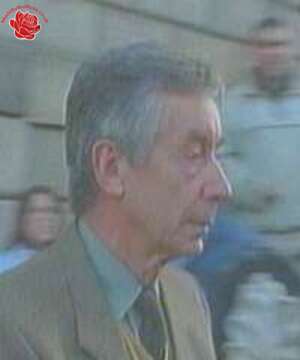
Peter Morphew
Co Wicklow
Sexual Abuser

Frank Stafford
Co Wicklow
Sexual Abuser

Anthony Murphy
Co Wicklow
Sexual Abuser
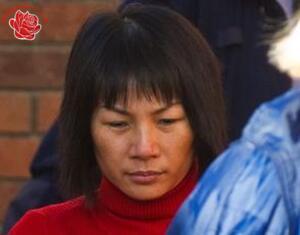
YAN Yuet Ching
Co Wicklow
Bray
Sexual Abuser
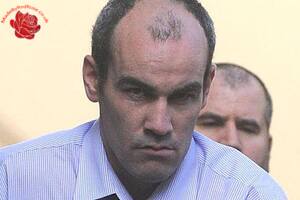
Michael Martin
Co Wicklow
Laois
Sexual Abuser
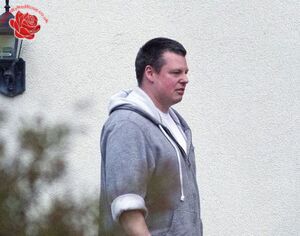
Niall Brady
Co Wicklow
Sexual Abuser
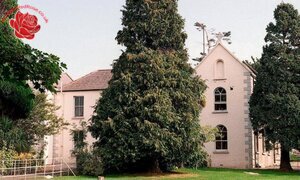
Trudder House
Co Wicklow
Sexual Abuser
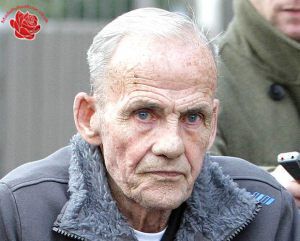
Patrick O’Brien
Co Wicklow
Bray
Sexual Abuser
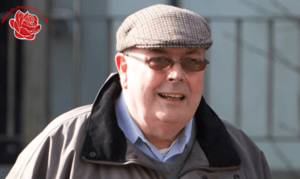
Denis Nolan
Co Wicklow
Sexual Abuser
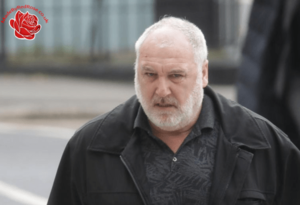
Stephen Murray
Co Wicklow
Sexual Abuser